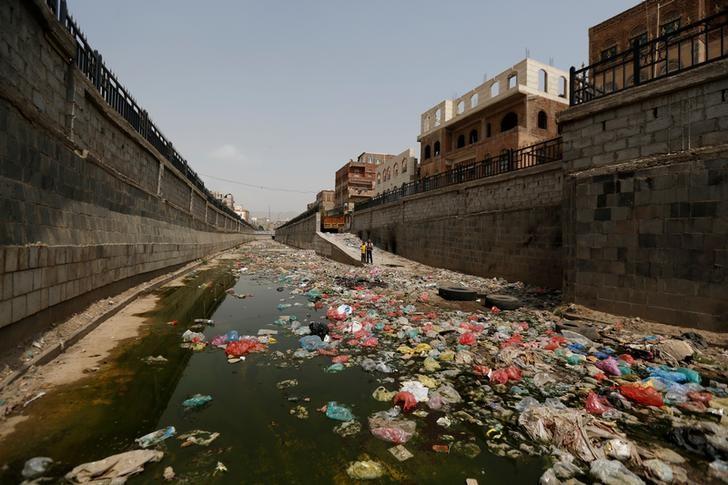WHO plans global war on cholera as Yemen caseload nears 700,000
September 19, 2017

The World Health Organization will next month launch a strategy to stop cholera transmission by 2030, it said on Monday, as an unprecedented outbreak in Yemen raced towards 700,000 suspected cases with little sign of slowing down.
The WHO is also trying to keep the lid on a flare-up in Nigeria while tackling many entrenched outbreaks in Africa and an epidemic in Haiti, where almost 10,000 people have died since 2010.
“Once it’s out of the box, once it has spread, it’s very, very difficult to contain and we have a huge number of cases and deaths,” said Dominique Legros, the cholera focal point at WHO’s department for pandemic and epidemic diseases.
“It spreads like a forest fire.”
Epidemics often arise in war zones. The WHO is sending an expert to Bangladesh to assess the risk for Rohingya Muslims fleeing from violence in Myanmar.
“The risk is probably relatively high,” Legros said.
In Yemen, the most explosive outbreak on record has caused 686,783 suspected cases and 2,090 deaths since late April. The number of deaths has slowed but the spread of disease has not: in the past week there were 40,000 suspected cases, the most for seven weeks.
Legros said it was impossible to predict how any outbreak would evolve, but Yemen’s was likely to continue for a long time. The low death rate suggested the outbreak was not severe, although there may be many uncounted deaths in the community.
The number of suspected cases in Yemen cannot be checked accurately, and many may be acute watery diarrhea, which has similar symptoms and treatment but is not caused by the cholera bacterium, which is spread by contaminated food and water.
The WHO estimates there are 2.9 million cases and 95,000 deaths globally each year, far more than officially reported.
Equipped with a vaccine stockpile that it created in 2013, it plans to launch a global strategy on Oct. 4.
“The objective of the new strategy is to stop transmission by 2030,” Legros said. “Overall, we expect reduction of mortality by 90 percent by 2030.”
The strategy will aim to use the vaccine to contain outbreaks as fast as possible, while addressing deeper problems.
In Africa, growing urbanization, climate change, conflict, displacement camps - as well as sanitation investment that is a third of what it should be - mean there is no reason to expect any improvement without deliberate action, he said.











